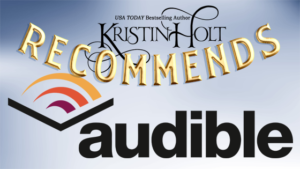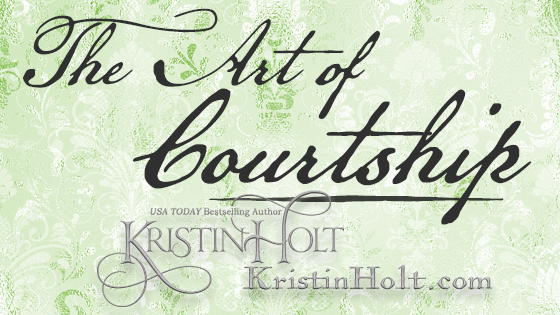
by Kristin Holt | Jun 17, 2019 | Articles
The Art of Courtship: Vintage wisdom relayed from the mid-nineteenth century to a newspaperman thirty years later (in 1887) sheds light on choosing a wife, beginning a courtship, different types of girls (shy, coquette [flirt], “vidders” [widows], and old maids, etc.). Victorian attitudes are prevalent, including the general idea that the sick and infirm aren’t suitable to marriage (think of the children!). Everything you wished your great-great grandpa had told you about courting… and more.
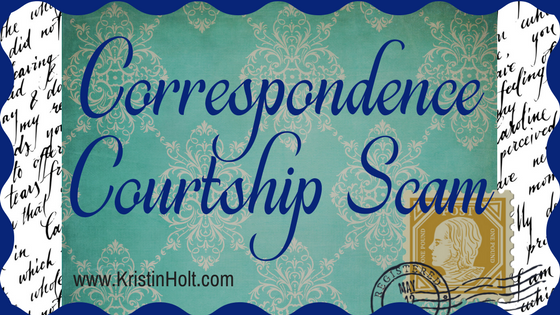
by Kristin Holt | Nov 9, 2017 | Articles
In 1905, The Courier of Harrisburg, Pennsylvania published an article detailing a “Correspondence” Courtship Scam. A young, innocent girl lost more than her heart, more than $1,000 (a fortune in today’s dollar)–she lost her confidence and her trust in humanity.
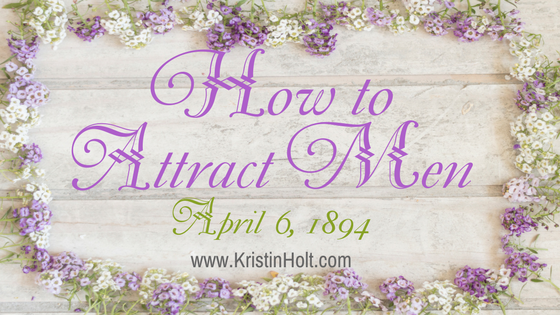
by Kristin Holt | Mar 30, 2017 | Articles
A vintage newspaper article (123 years old), dated April 6, 1894, was published in a Hamburg, New York newspaper (The Sun and the Erie County Independent). Titled HOW TO ATTRACT MEN, the brief advice encapsulates the late Victorian-era’s social expectations for men and women–and sheds light on the etiquette of courtship…or how a woman might properly persuade a man to notice her (so a courtship might commence).

by Kristin Holt | Jul 17, 2016 | Articles
“A cross between guidebook and social commentary, The Spinster Book gives clever and humorous insights on topics such as courting, handling men and women, love letters, marriage and spinsterhood.” I share one of the book’s vignettes on men; how they compare to cats…and a most successful way (for a Victorian lady, at least) to win a man’s heart, an invitation to a live theater or opera production, and his undying adoration. The book was published in 1901. The author (Myrtle Reed)’s sense of humor shines through, and sheds more than a little light on Victorian attitudes about courtship.
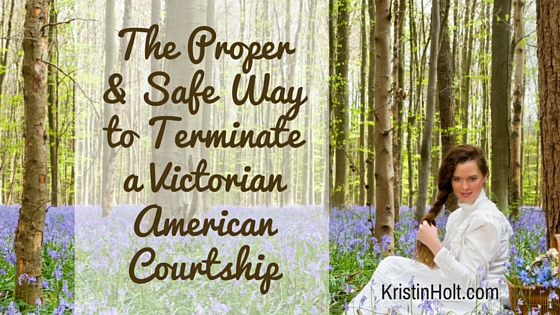
by Kristin Holt | Apr 9, 2016 | Articles
We’ve seen the financial, legal, and emotional costs of a courtship gone wrong and culminating in a suit for breach of promise. In Victorian America, where such a consequence was possible if not common enough (to scare a young swain or two), advice of how to break up an unhealthy courtship–or cancel a planned wedding–must have been given by mothers, fathers, society matrons, and “Dear Abby’s” of the day. Indeed they did! This article includes quotes from 3 era-specific books published during the time period.












